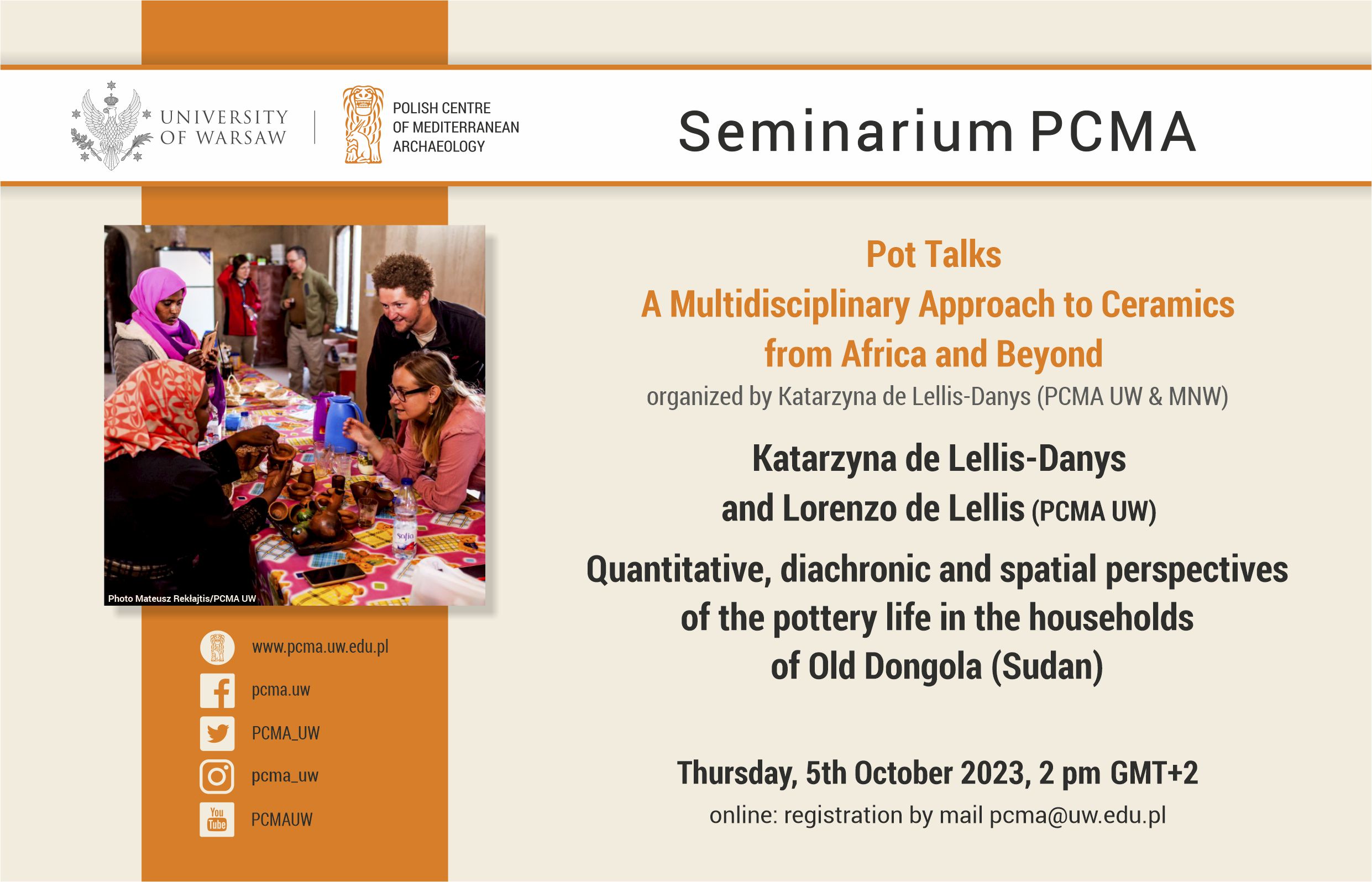W październiku rusza nowy cykl tematyczny w ramach Seminarium PCMA: “Pot Talks (Rozmowy o garnkach) – Multidyscyplinarne podejście do ceramiki z obszaru Afryki i nie tylko”. Organizatorką cyklu jest dr Katarzyna de Lellis-Danys z Zakładu Studiów Afrykańskich CAŚ UW i Muzeum Narodowego w Warszawie.
Wykłady w cyklu “Pot Talks (Rozmowy o garnkach)” będą obejmować tematy związane z multidyscyplinarnymi badaniami ceramiki, które umożliwią uczestnikom wymianę doświadczeń z kolegami pracującymi w różnych częściach Afryki i poza nią. Obszary zainteresowania to społeczny i ekonomiczny wpływ ceramiki na dawne populacje, badania archeometryczne oraz metodologia, w tym gromadzenie danych i zarządzanie nimi.
Spotkania będą opierać się na budowaniu platformy między uczestnikami w celu ułatwienia wymiany wiedzy i wielowymiarowego obrazowania krajobrazu afrykańskiej przeszłości poprzez badania ceramiczne.
Podczas pierwszego spotkania z tego cyklu dr Katarzyna de Lellis-Danys i dr Lorenzo de Lellis (CAŚ UW) wygłoszą referat pt. „Quantitative, diachronic and spatial perspectives of the pottery life in the households of Old Dongola (Sudan)”.
Abstrakt: “The comprehensive research program on the liminal phases between the Late Christian and Islamic periods of Old Dongola (Sudan) thanks to the ERC Starting Grant ‘UMMA’ from the Polish Centre of Mediterranean Archaeology University of Warsaw included excavations of the large piece of the city among other project activities. It resulted in a massive corpus of data, including over 145,000 fragments of pottery, dated to the 14th–18th centuries CE, and presented a unique opportunity to apply quantitative, diachronic, and spatial analysis on a large scale. Various classes of vessels such as bowls, plates, jars, and incense burners provided insights into the daily life of Old Dongola’s population.
This paper presents a diachronic and spatial perspective of the ceramic finds, based on the quantitative analysis of the assemblages, their relationship to the spatial context, and their variability through time. Issues of multifunctionality and association between pottery classes and with other types of artefacts, distribution, seriation, and composition of the assemblages are here discussed to offer a contextualized overview of the life cycle of the pottery in Old Dongola, from production to discard.”
Seminarium odbędzie się w trybie zdalnym we czwartek 5 października o godzinie 14:00 na platformie Zoom.
Aby otrzymać link prosimy pisać na adres pcma@uw.edu.pl


